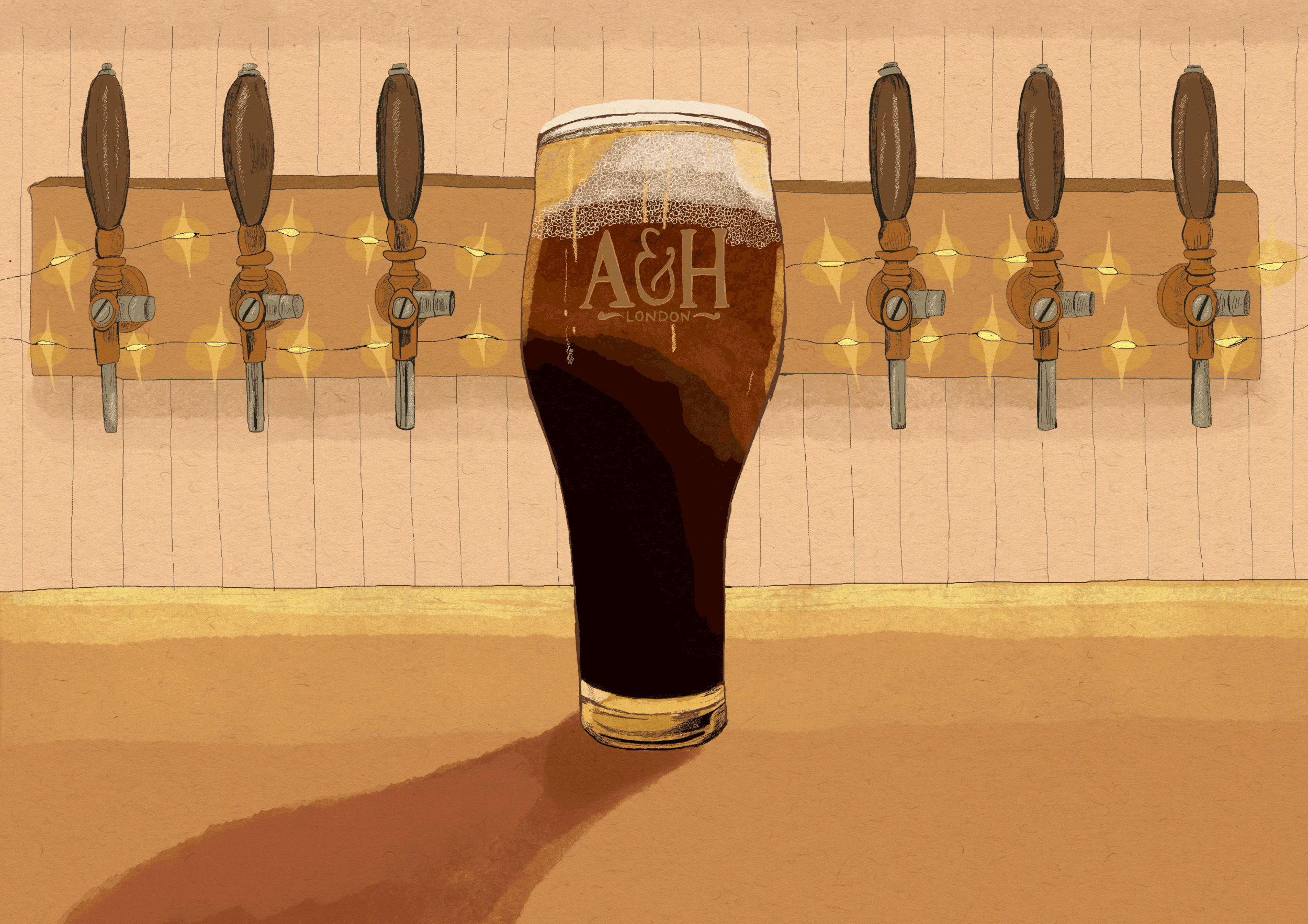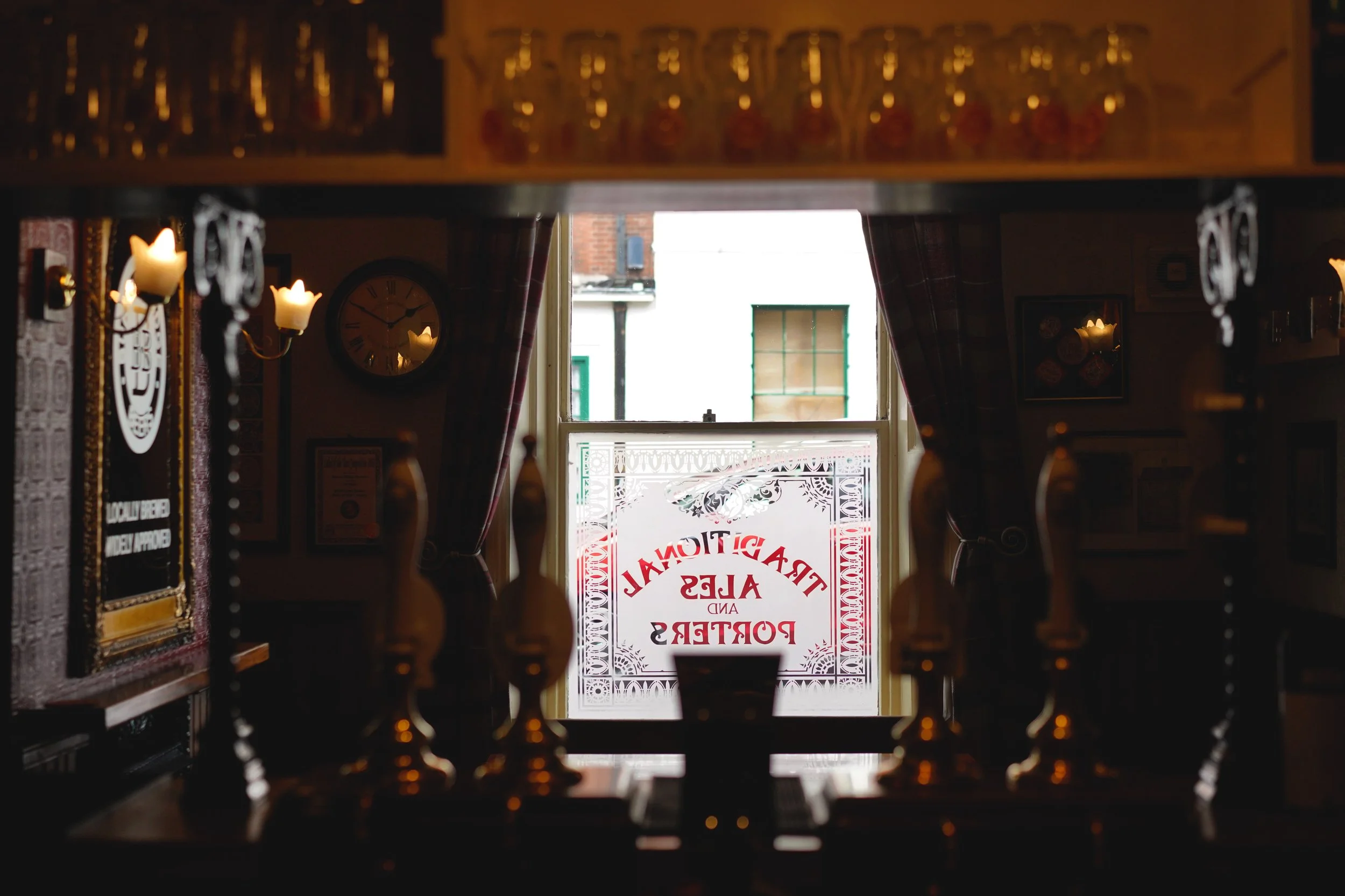Heaven Knows I’ve Tried — On Ted Lasso, and the Idyll of the London Pub
It totally shouldn’t work. That’s the first thing fans agree on.
Rarely can there have been a TV show that invites a cynical viewer to come to it with such low expectations. Nine years ago, US TV network NBC made a couple of YouTube ads to promote their coverage of the English Premier League. These ads featured Saturday Night Live’s Jason Sudeikis as a hapless American coach who is appointed as new manager of “The Tottenham Spurs.” Running out every cliché about how Americans don’t understand (proper) football, Coach Ted Lasso is fired after six-and-a-half hours. Football isn’t the only thing he doesn’t understand: he’s a hapless, one-dimensional clown, oblivious to his limitations.
Seven years later, Apple TV thought it would be a good idea to give Ted Lasso and his assistant, Coach Beard, their own series. Shot in England, the show’s aim is to appeal primarily to an American audience who didn’t understand ‘soccer’, but also to a British and global audience with a deep love of the game.
Ted Lasso dropped in August 2021, with Ted returning to London to coach the fictitious AFC Richmond. (Imagine if Crystal Palace moved west across London.) With football transplanted from working-class towns and cities to a picturesque Thames-side idyll, replete with Richard Curtis-like production values that make London shimmer like a fairy-tale city, all capped off by a theme tune by Marcus Mumford of Mumford and Sons fame, what’s not to hate?
And then…
At first, I thought maybe it was lucky timing with the pandemic. Had I just gone soft in middle-age? Well, yes. But it wasn’t just me: the second thing all Ted Lasso fans agree on is that not only does it work when it really shouldn’t—it makes you want to change your life and become a better person.
““It’s a well-established fact that there is no successful long-running English drama that doesn’t feature a pub.””
That first season was nominated for more Emmys than any other debut series in history, and won seven, including ‘Outstanding Comedy Series’—the first ever streaming show to win this award. It’s gone on to fill trophy cabinets that fans of struggling AFC Richmond could only dream of.
There are many reasons why Ted Lasso transcends its shaky premise and confounds expectations: the quality of the writing and acting; its refusal to follow the conventions of drama or sitcom; and that buzz you get when a group of talented individuals collaborate and find something surprisingly great.
But a big reason it touches a chord with me and millions of other fans is that at its heart are themes of male friendship, the roles men are required to play (or believe they are) and male mental health (none of which takes away from any of the brilliant, fully realised female characters.) This isn’t really a show about football at all—the game itself barely features. It’s a show about how people get on—with each other, and with themselves.
Football—the talented and gracious current England team aside—can often channel the worst aspects of toxic masculinity. And if you think of how that gets portrayed in popular culture, beer and pubs are never far away. The football yob invariably has a can or pint of lager to hand.
It’s a well-established fact that there is no successful long-running English drama that doesn’t feature a pub. This, as Geoffrey Chaucer realised 640 years ago, is because the pub is the perfect stage for a wide variety of different characters to plausibly meet. This hasn’t gone unnoticed by the makers of Ted Lasso, partly because several of the English actors who play key roles are also members of the writing team.
Illustrations by Laurel Molly
The pub in Ted Lasso is the Crown & Anchor, a picturesque hostelry nestling on the edge of a lush green common. The first time the camera takes us inside, we meet the Greek chorus of Baz, Jeremy and Paul, three lager-swilling, die-hard Richmond fans. (Shrewdly, the real fans only ever get to watch the games in the pub, never on the terraces.)
“Look at this twat,” they say when Ted appears on screen in charge of his first game. “Fucking Yank.”
Back at the club, the dressing room is a predictable mix of prima donnas and wannabes, all similarly unimpressed by their new coach, all doing their best to conform to a buffed, beautified myth of the alpha male.
And the fucking Yank doesn’t give a shit.
Ted Lasso makes no apologies for his lack of football knowledge. He’s only interested in making each player the best version of himself that he can possibly be. Ted’s appearance, drawl and, of course, ignorance around the off-side rule, are the only common factors with the Lasso of the NBC ads. This Ted is kind, compassionate and thoughtful, a Jimmy Stewart for the 21st century. His version of masculine strength manifests in his ability to smile each time someone calls him a wanker (this happens a lot), to stick to his guns, and to believe not just in his players, but in himself (despite, eventually, being revealed to struggle with his own demons.)
Like a benign virus, Ted’s attitude spreads, infecting everyone who spends time with him. This ultimately extends from the characters to the viewer, and I wonder now whether this was the plan all along—this show begs you to come to it as cynically as I did at the top of this piece, because that makes it all the more satisfying when it finally gets you.
Obviously then, as soon as Covid restrictions and infections eased, I had to make a pilgrimage to Ted’s boozer. In real life, the Crown & Anchor is known as the Prince’s Head, first built around 1705 on the south-east corner of Richmond Green. On a sunny August evening, I’ll be damned if it doesn’t look exactly the same as in the show, with no filter. There really are fairy lights across the delightful paved alleyway that runs down the side, where Ted’s flat is. There really is a pair of red phone boxes outside.
Walking in, I feel like I’m walking on set. I’m not—the interior of the pub was never used, but a full-size set was built in a studio. They could have tweaked it in any way they wanted to suit the show, but they didn’t—they built an exact replica of the pub as it is, because it is perfect. I recognise the space where the sweary chorus stands looking at the TV (of course, they eventually turn out to be sweethearts), and the bar where publican Mae keeps control and warns them to give Lasso a chance. I pick out the table where Ted and Coach Beard sit and regroup over pints and fish and chips. Heading for the toilet, I walk through the backroom where the team gathers for a meeting to discuss lifting a curse on the club’s treatment room, caused after it was used to deceive Richmond fans in 1914 into enlisting and marching to their deaths in the trenches.
““As a snapshot of male friendship, it’s so perfect that even the accompanying turgid ballad by Marcus fucking Mumford can’t ruin it.””
Both the Prince’s Head and its alter-ego, the Crown & Anchor, are Fuller’s pubs. The chain is concentrated around west and central London, so for the most part they’re Sunday-Best kind of pubs, with good food, solid furniture, and a sense of authoritative permanence. They suit an American tourist’s ideal of a pub very well.
But as my wife and I sit with post-dinner drinks at Ted and Coach Beard’s table, I can’t escape a nagging feeling that I was expecting something special here, some fairy dust that got spilled as the crew packed away (even if they were never actually in here in the first place.) But it feels no different from any other Fuller’s pub in London. In fact, it doesn’t feel different from any pub at all.
I realise that’s the whole point. Just like the fairy lights and phone boxes weren’t just props for the series, just like the whole scene really does look magical in the golden hour, the people who made Ted Lasso didn’t do anything to this pub at all—they just showed a global audience what London pubs are really like. They depicted the magic that’s already there, that has always been there, that we locals sometimes take for granted.
The Ted Lasso pub is just a pub—and that’s the whole point. That’s why they renamed it the ubiquitous Crown & Anchor rather than the slightly more unusual Prince’s Head. This really is where we cheer and swear and laugh and cry, and in real life, it’s where men can, eventually, drop the emotional armour—the cynicism and fake toughness—and be their true selves. just like Ted encourages his players to be.
There’s a point halfway through the first season where Ted’s heart breaks. Stunned by loss, he slumps onto a wooden bench by the red phone boxes, an umbrella hanging slackly, not quite sheltering him from the inevitable rain. Immediately, Coach Beard walks into shot, carrying two pints of lager. He hands one to Ted, then sits down next to him on the bench, toting his own umbrella. The two men look at each other, nod, clink glasses, bang them on the bench, and drink—a sip for Beard, a third of a pint for Ted. Not a word is spoken between them. They each stare off into space, happy-sad, and the episode ends.
As a snapshot of male friendship, it’s so perfect that even the accompanying turgid ballad by Marcus fucking Mumford can’t ruin it.












